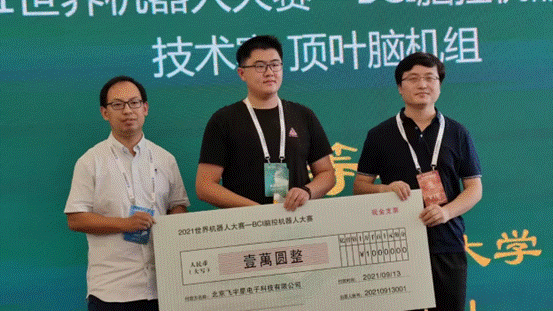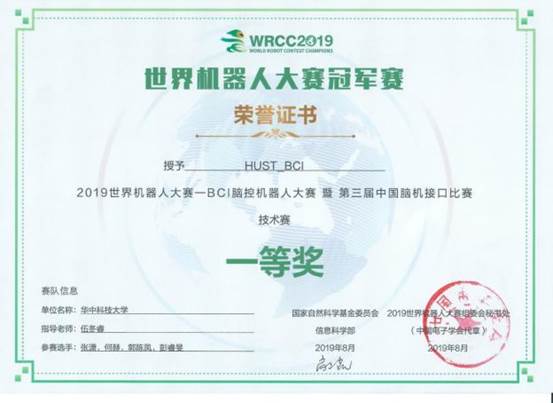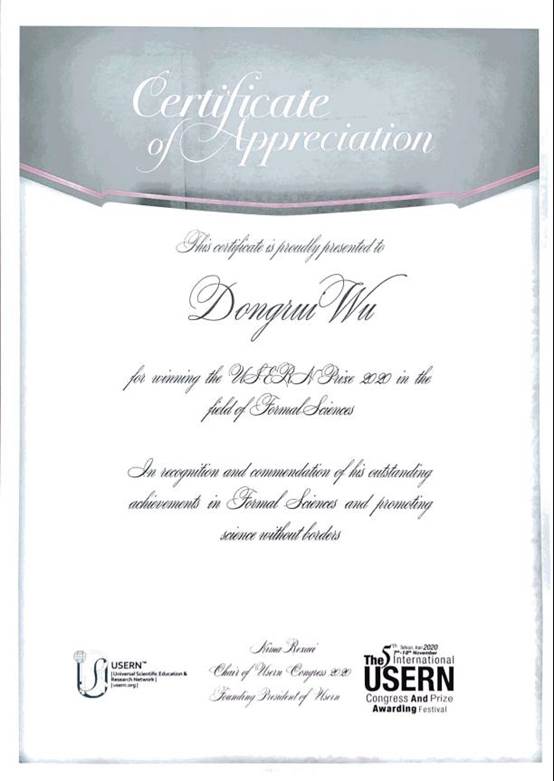From September 10th to 13th, the World Robot Conference 2021 - BCI Controlled Robot Contest was held in Beijing. The contest was organized by the Chinese Institute of Electronics, jointly with National Natural Science Foundation of China and Tsinghua University – along with several relevant organizations. HUST’s Brain-computer Interface and Machine Learning Laboratory from the School of Artificial Intelligence and Automation won individual and comprehensive championships in the technical competition.
The two teams from Professor Wu Dongrui's laboratory ranked first and the eighth place respectively, nationally, in the preliminary competition. The two teams then merged to participate in the final according to the proposal of the organizers. Composed of graduate students Bian Rui, Cui Yuqi, Quan Xueliang, Deng Lingfei, Xia Kun, and Wu Huanyu, the team won three trophies from the seven sub-competitions. Finally, they won the first prize of the "Parietal brain unit" (first place overall), comprehensive first prize (first place overall) and a 40,000 yuan prize.


Professor Wu Dongrui's team have also won the first prizes in the technical competition in 2019 and 2020 respectively. Professor Wu Dongrui was awarded the USERN Prize in Formal Sciences in November 2020 for his contributions to brain-computer interface and machine learning. It was the first time that a Chinese scientist had won a USERN Prize. The award is reviewed by the USERN Advisory Committee which consists of world-renowned scientists in all fields, including 16 Nobel laureates and 2 Abel Award winners.



Brain-computer interface (BCI) refers to the collection, identification and transformation of electrical activity and characteristic signals of the nervous system. BCI enables the instructions issued by the human brain to be transmitted directly to the designated machine terminal, improving the efficiency of the control and operation of robots and facilitating the communication between human and robots. The technology has been widely used in several areas such as disability rehabilitation, gaming and entertainment.
The World Robot Conference has been successfully held for 6 times since 2015, attracting more than 150,000 competitors from over 20 countries. Being widely described by mainstream media as the "Olympics" of the robotics industry, it is currently an official professional event in the robotics field with widespread influence globally The contest centers around three major competition directions of scientific research, skills, and science popularization. It sets four competitions, including the Tri-Co Robot Challenge, the BCI Controlled Robot Contest, the Robot Application Contest, and the Youth Robot Design Contest. The official data collected at this event will be kept as an important research record in the field of brain-computer interface in China.
Written by: Hu Zhenxiang
Edited by: Liu Yikang, Scott, Peng Yumeng
